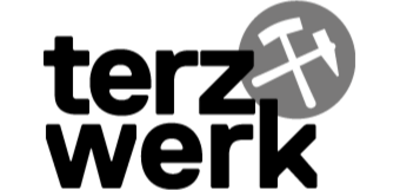BA and MA in Journalism Studies
Studying journalism at TU Dortmund University offers students a unique advantage: practical media training through a traineeship (Volontariat), which is integrated directly into university study. Therefore, students obtain not only a Bachelor or Master’s degree, but also professional editor status.
Furthermore, in our training newsroom, students produce multimedia content for the online magazine KURT digital, which introduces them to the daily routines of an editorial team.
BA at a glance
- Application phase: June-July
- Programme start: Winter semester (October)
- Standard study period: 8 semesters
- Curriculum: practical training in a newsroom plus education in journalism studies plus complementary subject, plus a year-long traineeship with partner media
- Admission requirements: 6-weeks internship. The goal of the internship is to become familiar with recurring journalistic basic routines and to develop a fundamental understanding of the public role of journalism. Internships in the editorial office of an advertising paper, a PR or media agency, press offices, or in non-journalistic media and production companies will not be recognized.
- German language requirements: Level C2 (only certificates from universities, colleges and preparatory courses whose examination regulations are registered with the German Rectors' Conference are recognized, please find more details on the website of TU Dortmund University)
- German language requirements for Erasmus+ students: Level B1
Curriculum Design BA
The Bachelor of Journalism studies degree is divided into eighteen units, which are studied over eight semesters. Modules include studies in journalism, complementary subjects offered within other degree programmes (e.g., Political Science, Sociology, Law, Economics, French, and English Studies), and a year-long traineeship (Volontariat), which students complete in the seventh and eighth semester. Furthermore, students also work within the institute's training newsroom. The training newsroom is an important component of the journalism studies programme in Dortmund. Here, students work for the institute’s own publications while learning about editorial workflows, teamwork and practical journalistic expertise.
Students need to complete a total of 240 credit points during their studies. Graduating students obtain a "Bachelor of Arts." As almost all classes are taught in the German language, students require a very good level of spoken and written German.
Study content BA
The main aim of the programme is to educate students, so they can qualify as journalists to report on current events. The programme covers reporting for newspapers, news agencies, television, radio and online broadcasting, and digital news formats, and intends to convey a mixture of both theory and practical elements:
-
Basics in journalism production for print and electronic media;
-
The capability to understand complicated issues and make such issues accessible to an audience in a journalistic form;
-
Communicative and social competencies;
-
Knowledge of societal contexts with the ability to report competently and critically on current events across diverse fields and from varying perspectives;
-
Reflective capabilities and ethical competency to be able to review and contextualise events journalistically and to develop a critical attitude towards one’s own actions as a journalist.
MA at a glance
- Application phase: Any time prior to start of the programme
- Programme start: Winter semester (October)
- Standard study period: 2 semesters
- Curriculum: practical training in a newsroom plus education in journalism studies
- Admission requirements: completed traineeship (Volontariat)
- German language requirements: Level C2 (only certificates from universities, colleges and preparatory courses whose examination regulations are registered with the German Rectors' Conference are recognized, please find more details on the website of TU Dortmund University)
- German language requirements for Erasmus+ students: Level B1
Curriculum Design MA
The first semester is dedicated to both the theoretical and practical foundations of quality journalism. The quality debate is reflected at both national and international levels and is discussed with media scientists and practitioners. Courses in the second semester deal mainly with challenges within the media industry. Experience has shown a good portion of Dortmund journalism graduates eventually work in leadership positions. The courses entitled “Editorial management” and “Leadership competences” prepare students for senior management work.
In a weekly four-hour Master seminar, students regularly present and discuss the progress of their theses. This way students learn to implement their research with respect to content and methodology and to successfully complete their work within given time frames.
As almost all classes are taught in the German language, students need a very good level of spoken and written German.
Study Content MA
The Master’s programme in journalism studies aims to give students the competences needed to achieve a high standard within an increasingly competitive media and labour market.






